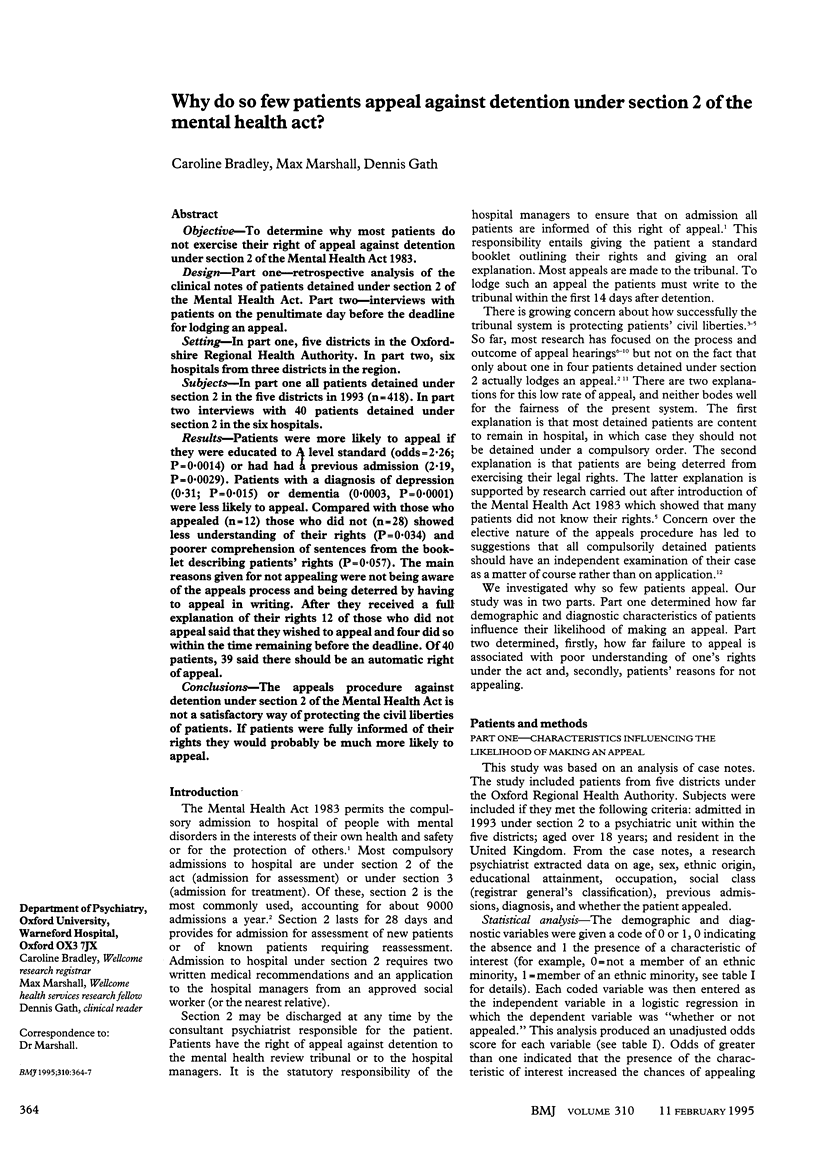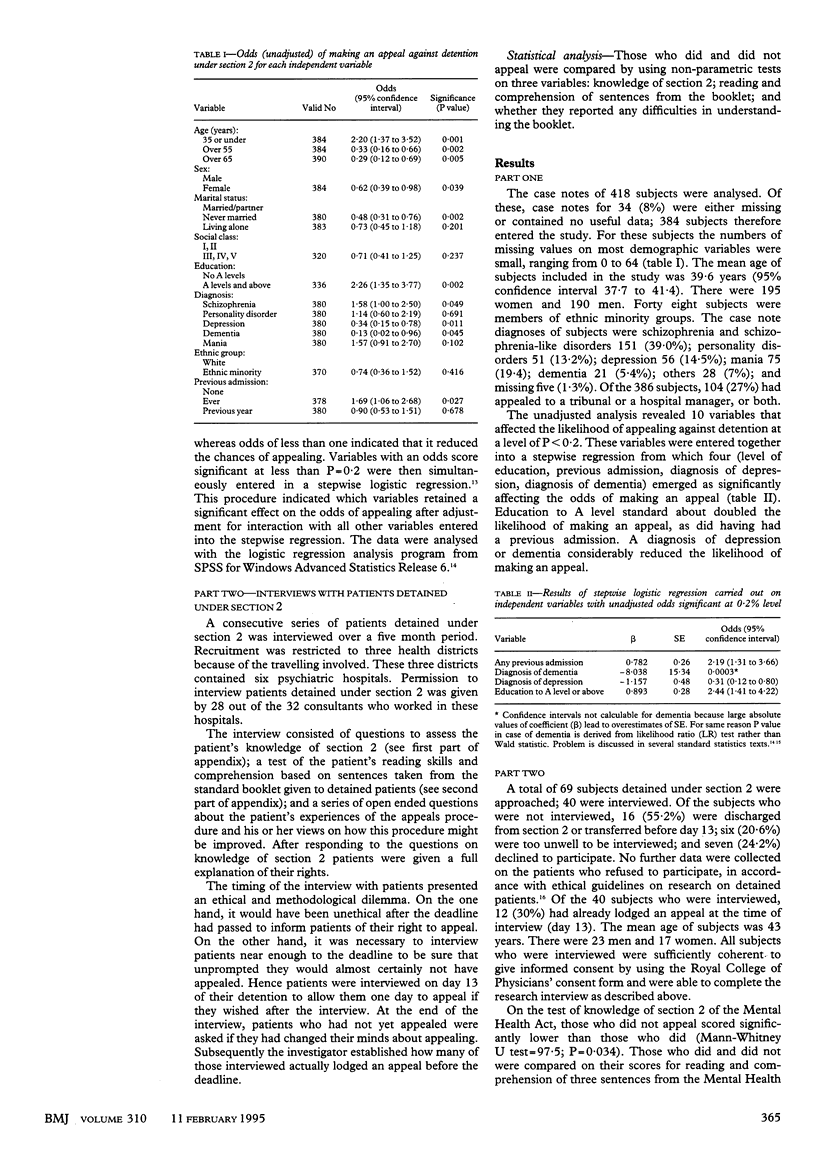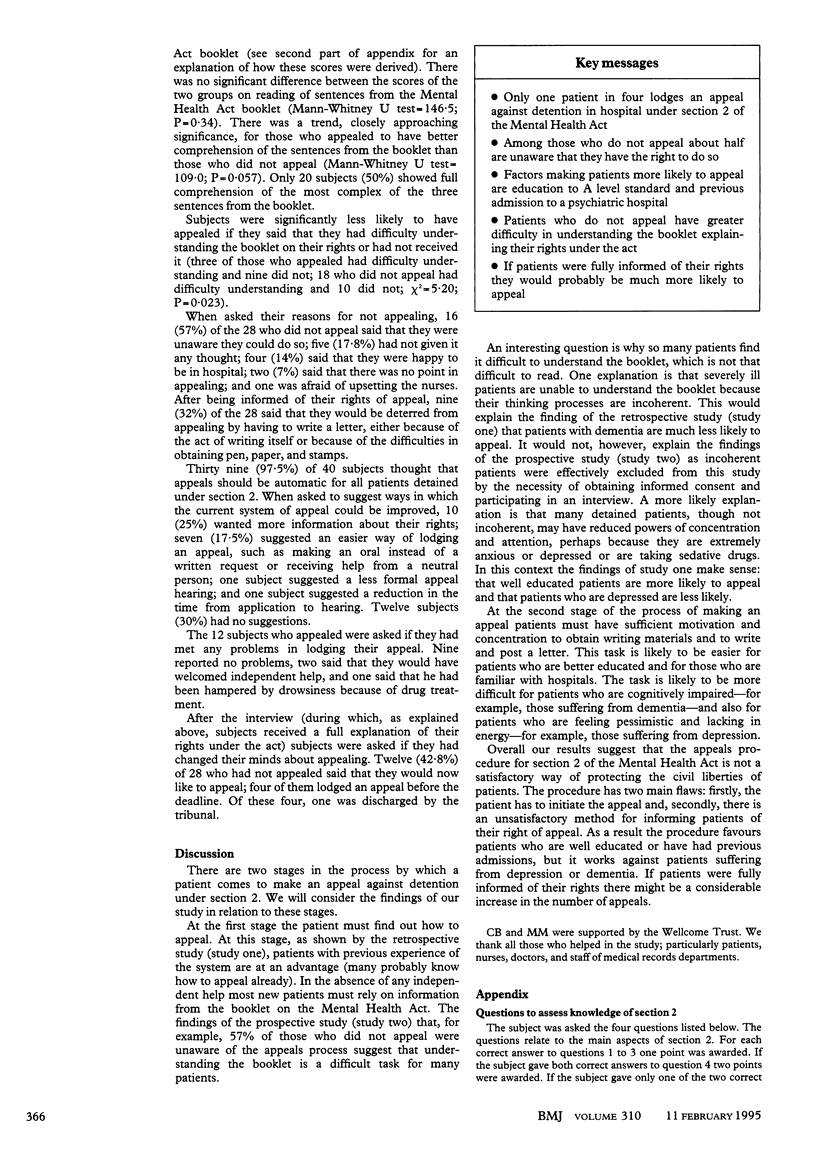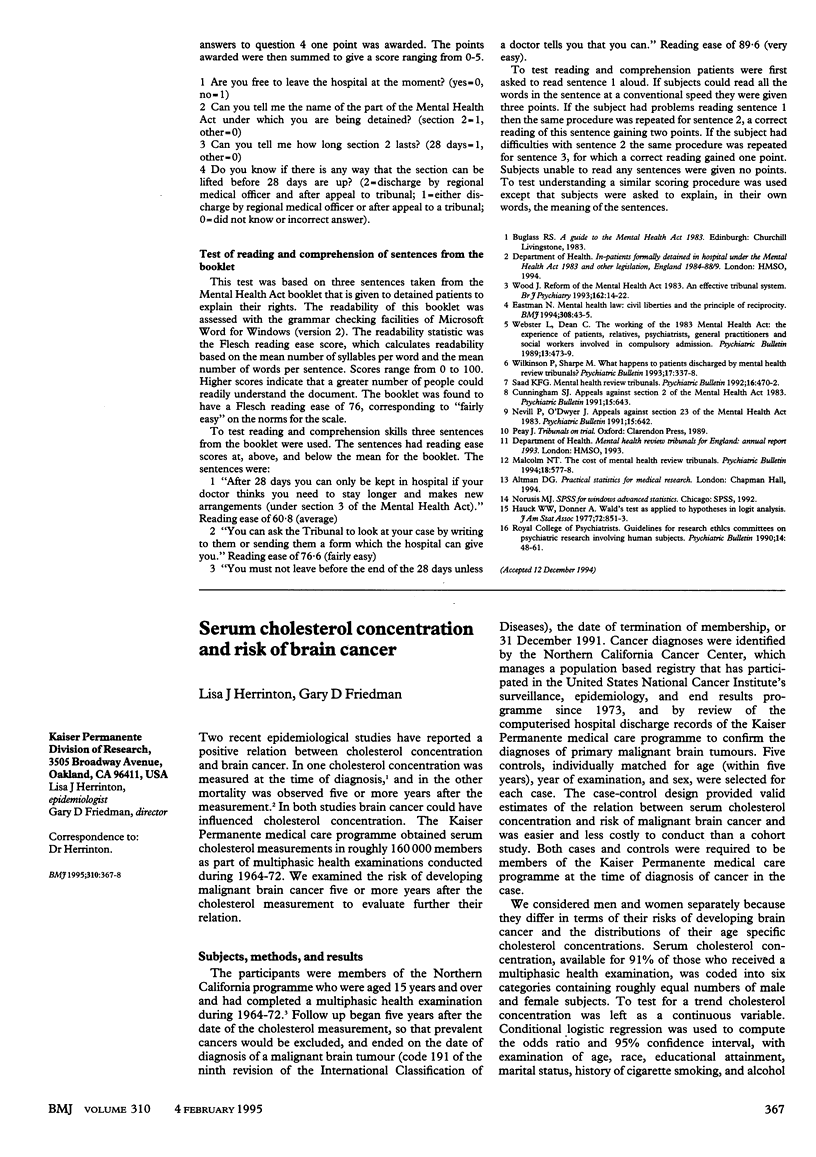Abstract
OBJECTIVE--To determine why most patients do not exercise their right of appeal against detention under section 2 of the Mental Health Act 1983. DESIGN--Part one--retrospective analysis of the clinical notes of patients detained under section 2 of the Mental Health Act. Part two-interviews with patients on the penultimate day before the deadline for lodging an appeal. SETTING--In part one, five districts in the Oxfordshire Regional Health Authority. In part two, six hospitals from three districts in the region. SUBJECTS--In part one all patients detained under section 2 in the five districts in 1993 (n = 418). In part two interviews with 40 patients detained under section 2 in the six hospitals. RESULTS--Patients were more likely to appeal if they were educated to A level standard (odds = 2.26; P = 0.0014) or had had a previous admission (2.19, P = 0.0029). Patients with a diagnosis of depression (0.31; P = 0.0.15) or dementia (0.0003, P = 0.0001) were less likely to appeal. Compared with those who appealed (n = 12) those who did not (n = 28) showed less understanding of their rights (P = 0.034) and poorer comprehension of sentences from the booklet describing patients' rights (P = 0.057). The main reasons given for not appealing were not being aware of the appeals process and being deterred by having to appeal in writing. After they received a full explanation of their rights 12 of those who did not appeal said that they wished to appeal and four did so within the time remaining before the deadline. Of 40 patients, 39 said there should be an automatic right of appeal. CONCLUSIONS--The appeals procedure against detention under section 2 of the Mental Health Act is not a satisfactory way of protecting the civil liberties of patients. If patients were fully informed of their rights they would probably be much more likely to appeal.
Full text
PDF



Selected References
These references are in PubMed. This may not be the complete list of references from this article.
- Eastman N. Mental health law: civil liberties and the principle of reciprocity. BMJ. 1994 Jan 1;308(6920):43–45. doi: 10.1136/bmj.308.6920.43. [DOI] [PMC free article] [PubMed] [Google Scholar]
- Wood J. Reform of the Mental Health Act 1983. An effective tribunal system. Br J Psychiatry. 1993 Jan;162:14–22. doi: 10.1192/bjp.162.1.14. [DOI] [PubMed] [Google Scholar]


